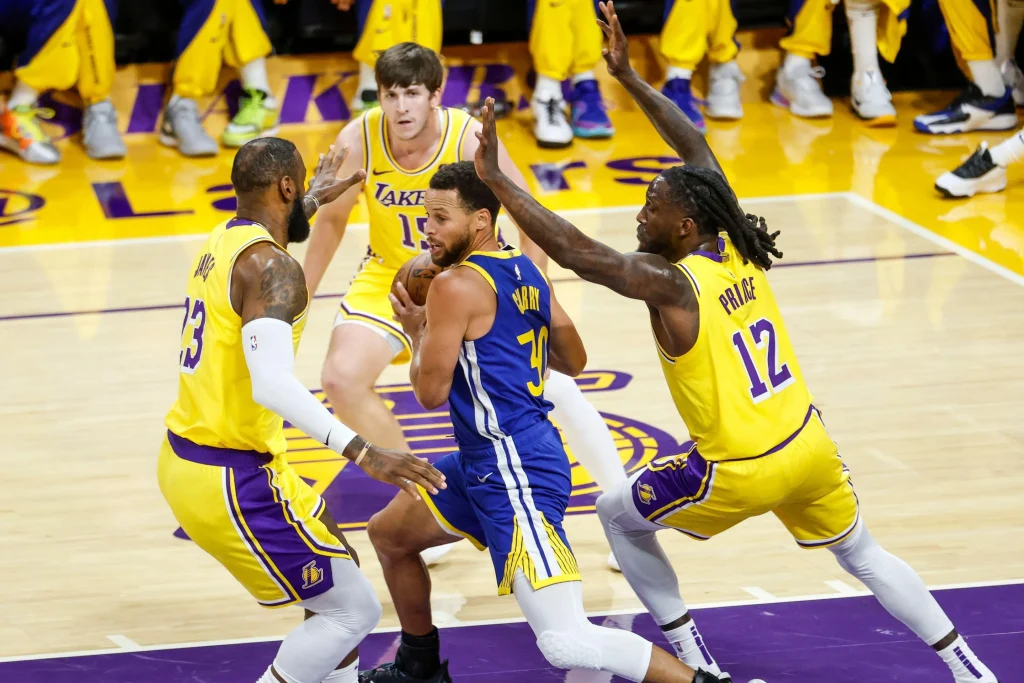
In the NBA, superstars often dominate headlines, but championship teams are rarely built on star power alone. Behind every successful squad lies a group of players whose contributions may not always make the highlight reels but are instrumental in determining the outcome of games and seasons: the bench. Bench depth—the quality and reliability of a team’s second unit—is an essential ingredient for sustained success in the league. Let’s explore why bench depth matters and how these unsung heroes shape a team’s fortunes.
The Role of Bench Players
Bench players may not start games, but their impact is felt throughout the course of a season. Their primary roles include:
- Scoring Support: Providing offensive production when the starters rest.
- Defensive Versatility: Bringing fresh energy and adaptability to matchups.
- Maintaining Momentum: Ensuring there is no significant drop-off in performance during rotations.
- Specialized Skills: Filling niche roles, such as three-point shooting, rim protection, or perimeter defense.
Why Bench Depth Matters
Sustained Energy Throughout Games
NBA games are long and physically demanding, and no starting lineup can play 48 minutes every night. Bench players allow teams to maintain intensity on both ends of the floor, preventing fatigue from affecting the starters. A deep bench ensures that a team can keep up the pace, even during back-to-back games or extended road trips.
Injury Insurance
Injuries are an inevitable part of any NBA season. Teams with deep benches are better equipped to weather the loss of a starter without a significant drop in performance. For example, the 2019 Toronto Raptors leaned heavily on their depth during Kawhi Leonard’s load-management games, which kept them competitive throughout the regular season.
Matchup Flexibility
Playoff basketball often revolves around matchups, and a strong bench provides coaches with options to counter opponents. Having versatile players who can adapt to different styles of play—whether it’s small-ball lineups or physical post play—is a significant advantage.
Memorable Bench Contributions
2014 San Antonio Spurs
The Spurs’ championship-winning team in 2014 is a prime example of the power of bench depth. Players like Manu Ginóbili, Boris Diaw, and Patty Mills provided scoring, playmaking, and defensive intensity that overwhelmed opponents. Their unselfish play and ability to execute coach Gregg Popovich’s system were critical to the team’s success.
2020 Los Angeles Lakers
The Lakers’ bench played a pivotal role in their 2020 championship run. Key contributions from players like Alex Caruso and Dwight Howard bolstered their defense and energy, complementing the star duo of LeBron James and Anthony Davis.
Building a Strong Bench
Constructing a deep bench is no easy task. It requires:
- Smart Drafting: Identifying and developing young talent who can grow into impactful roles.
- Savvy Free-Agent Signings: Targeting undervalued players who fit the team’s system.
- Role Definition: Ensuring players understand their roles and how they contribute to the team’s success.
- Chemistry: Building a cohesive unit where bench players complement the starters and each other.
Unsung Heroes in Today’s NBA
Jordan Clarkson (Utah Jazz)
A consistent Sixth Man of the Year contender, Clarkson provides instant offense off the bench with his scoring and playmaking ability.
Tyus Jones (Memphis Grizzlies)
Known for his efficient play and low turnover rate, Jones is a stabilizing force who ensures the Grizzlies’ offense runs smoothly when Ja Morant rests.
Bobby Portis (Milwaukee Bucks)
Portis’ energy, rebounding, and ability to stretch the floor have made him an invaluable piece for the Bucks, especially during their 2021 championship run.
Conclusion
Bench depth is the backbone of any successful NBA team. While superstars capture the spotlight, the contributions of the second unit often determine whether a team can sustain success over the grind of an 82-game season and deep playoff runs. By embracing their roles and stepping up when called upon, these unsung heroes ensure that the team’s aspirations remain within reach. As the saying goes, “A chain is only as strong as its weakest link,” and in the NBA, the bench ensures that link is anything but weak.
